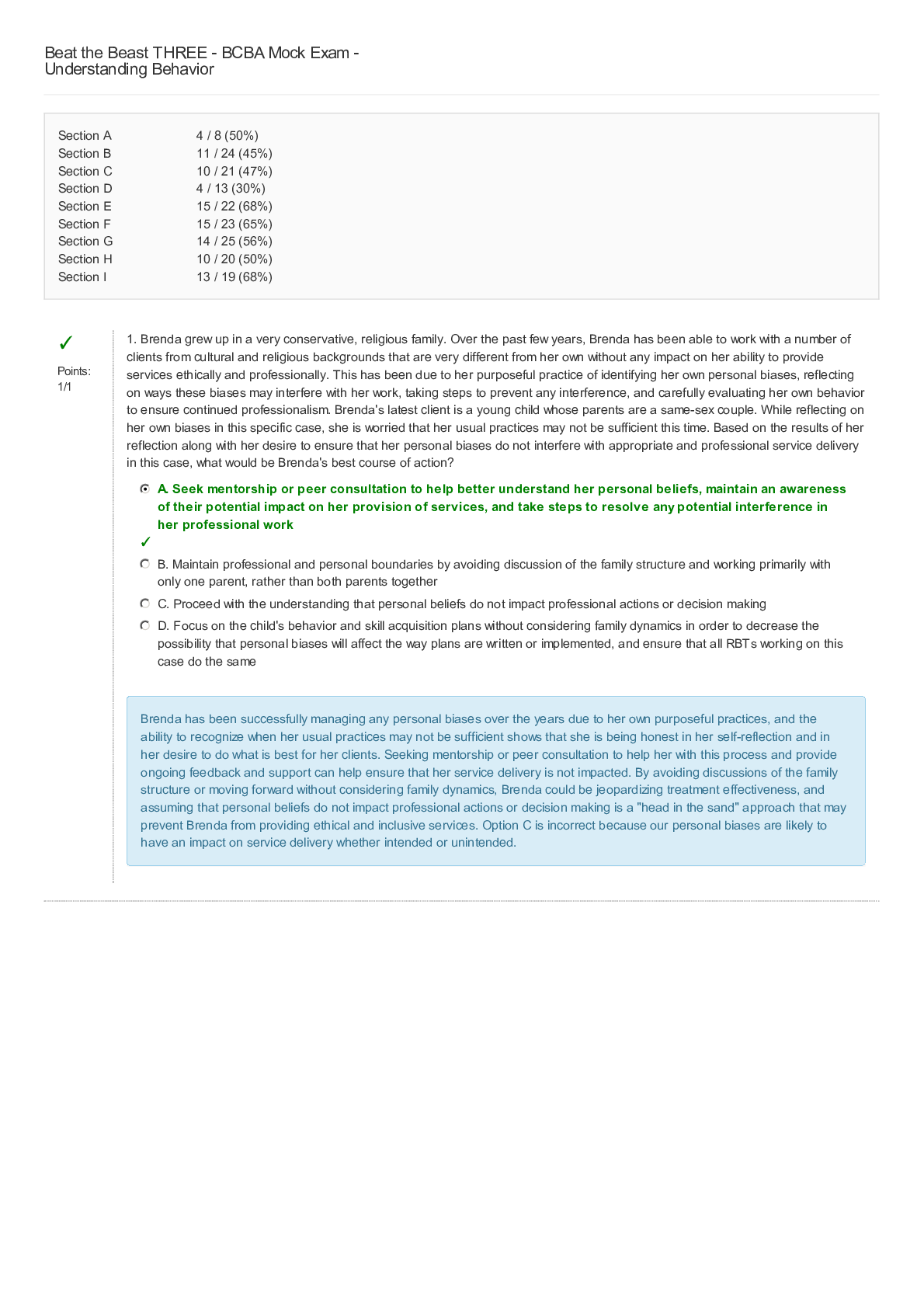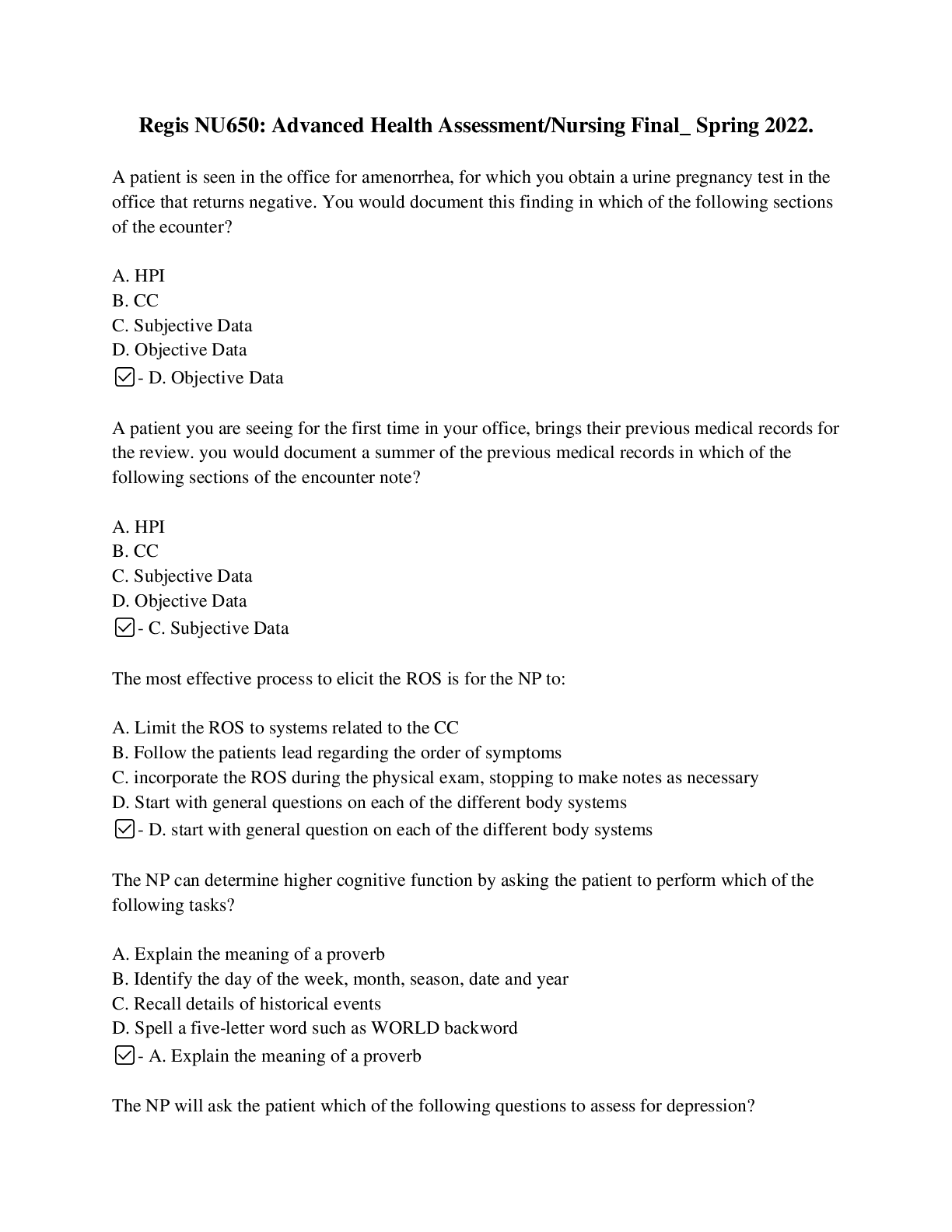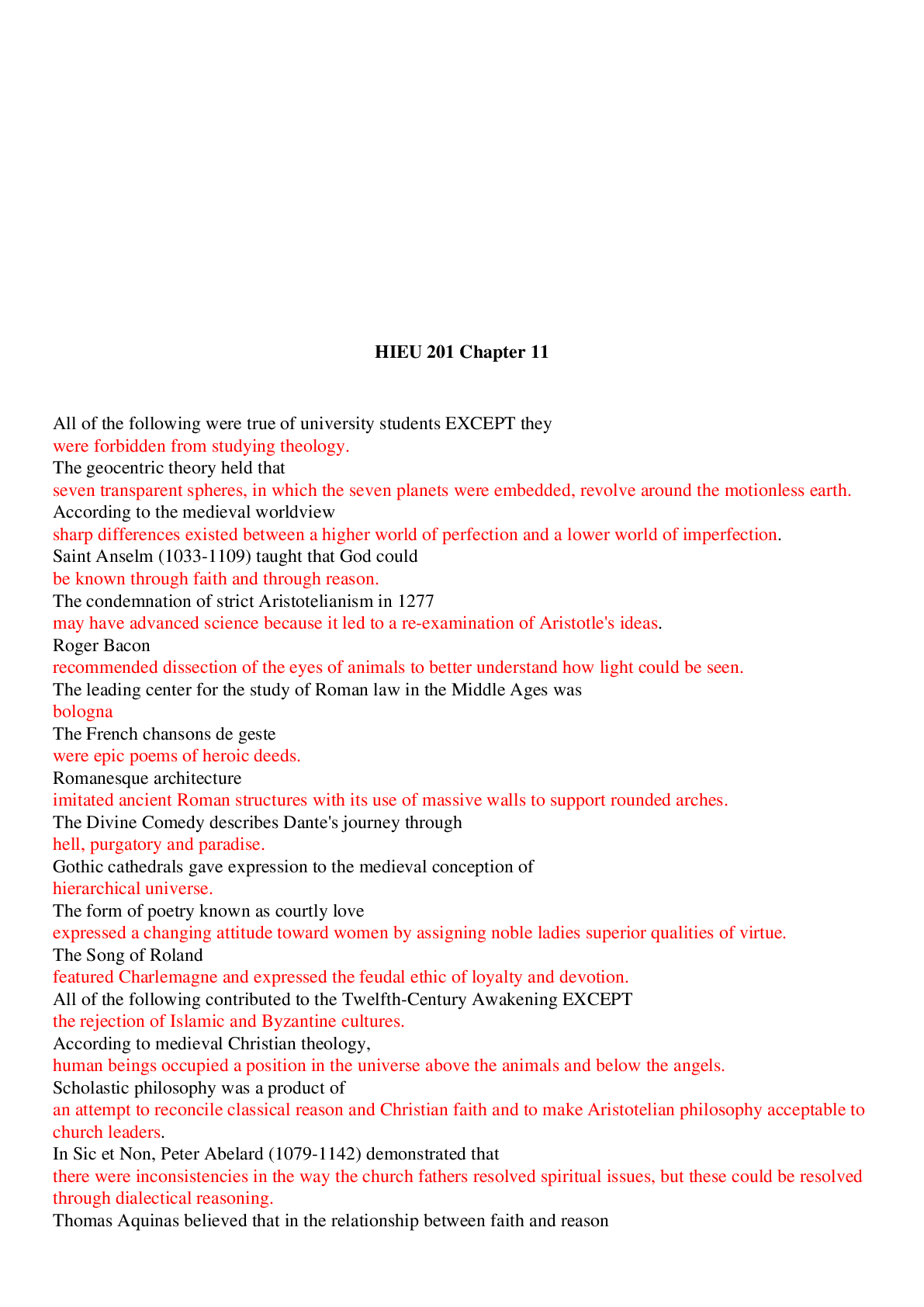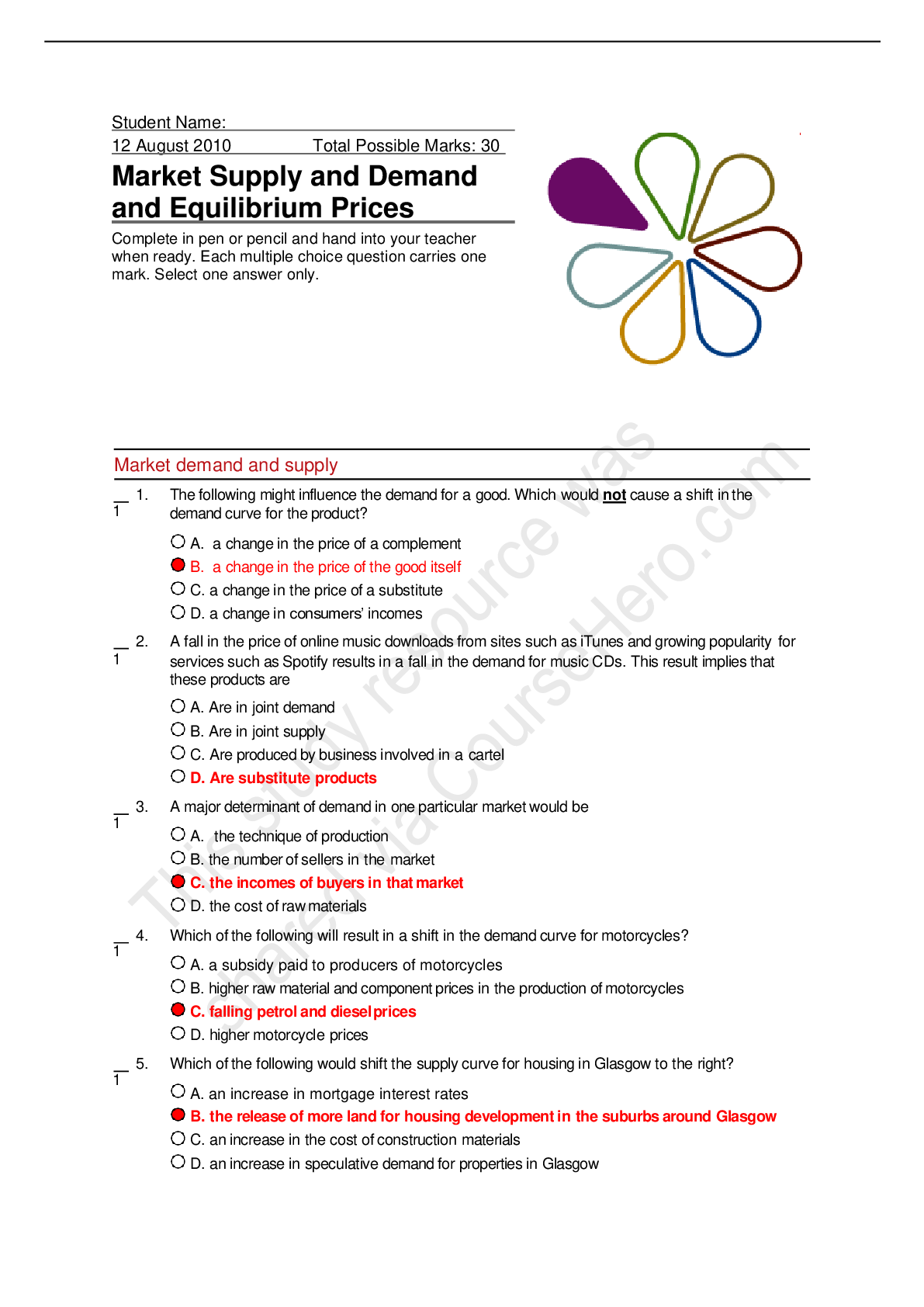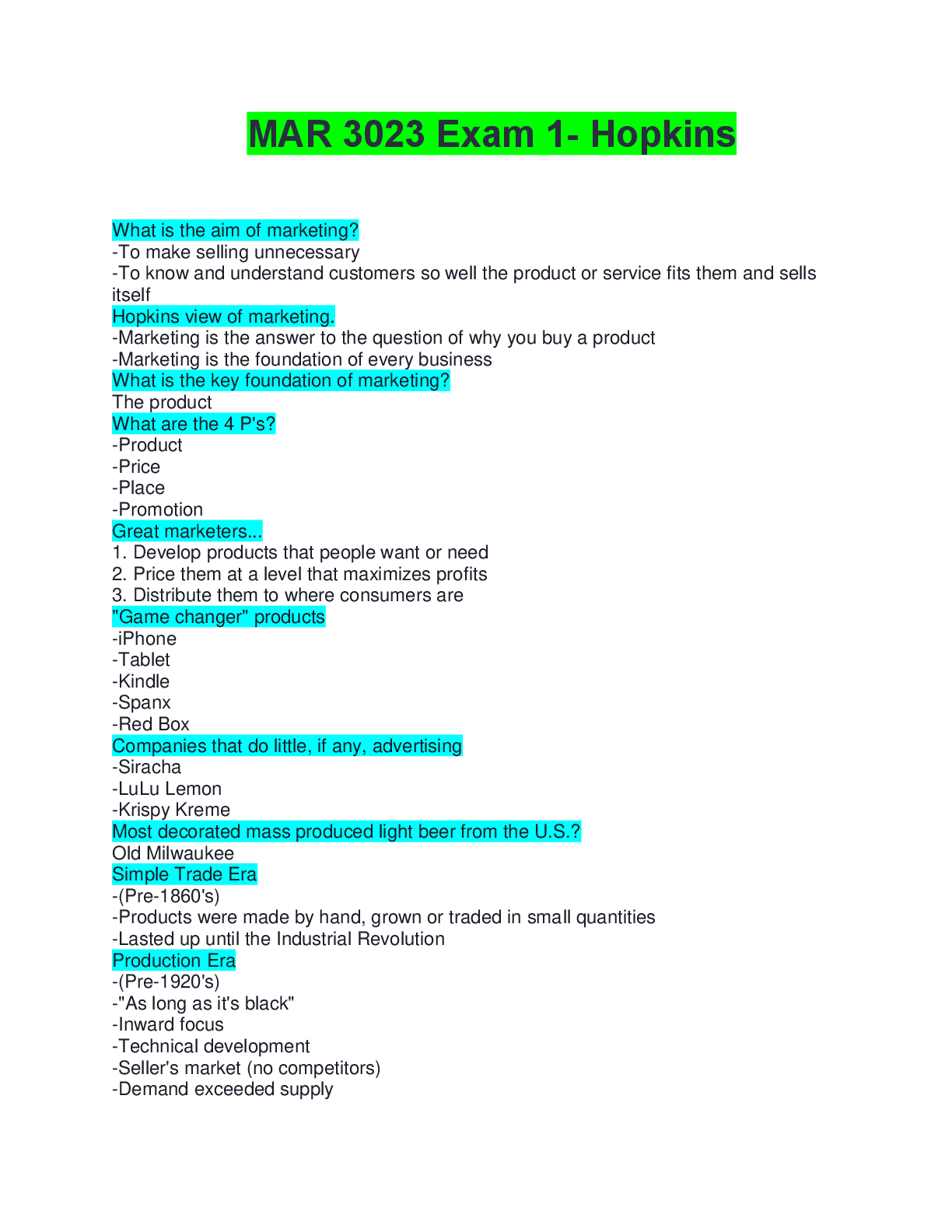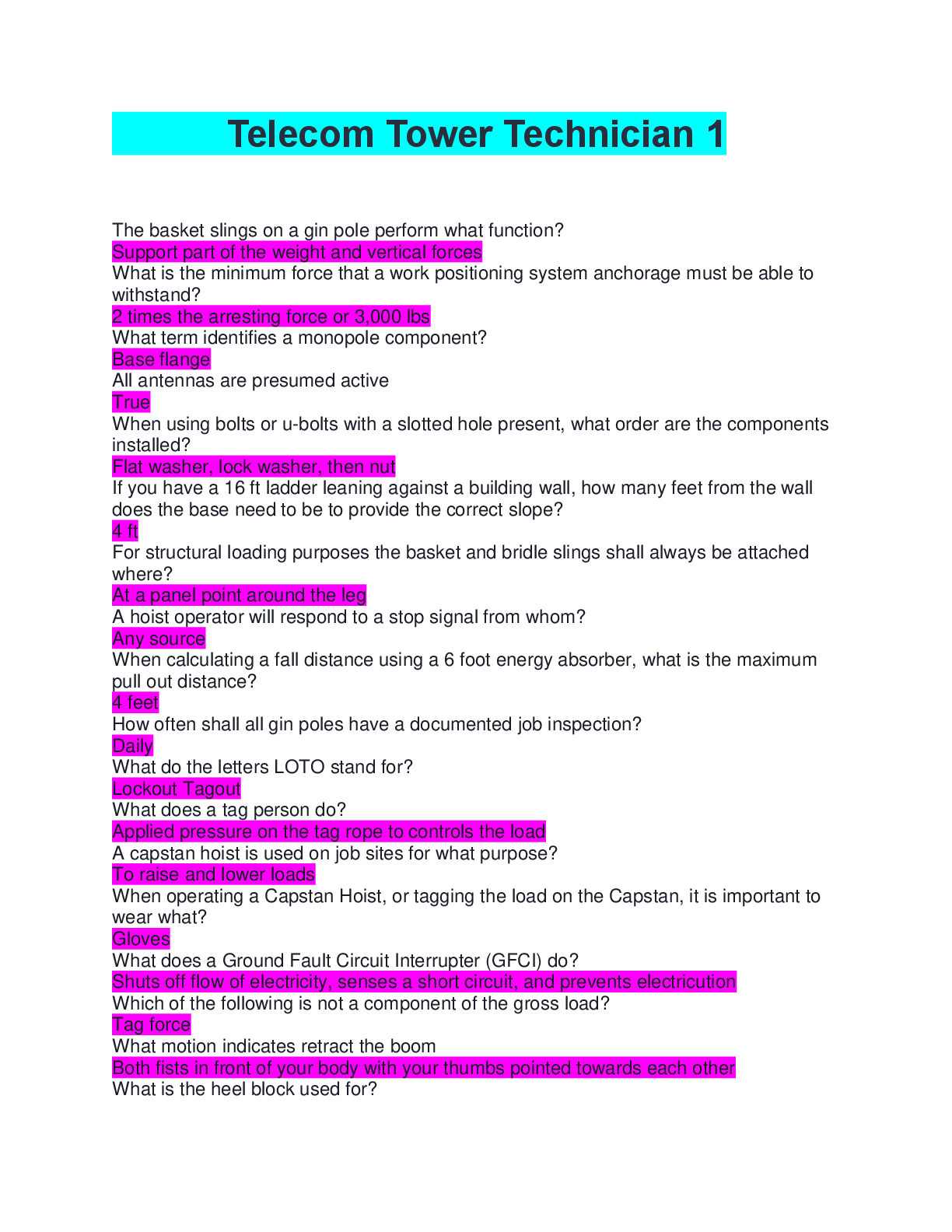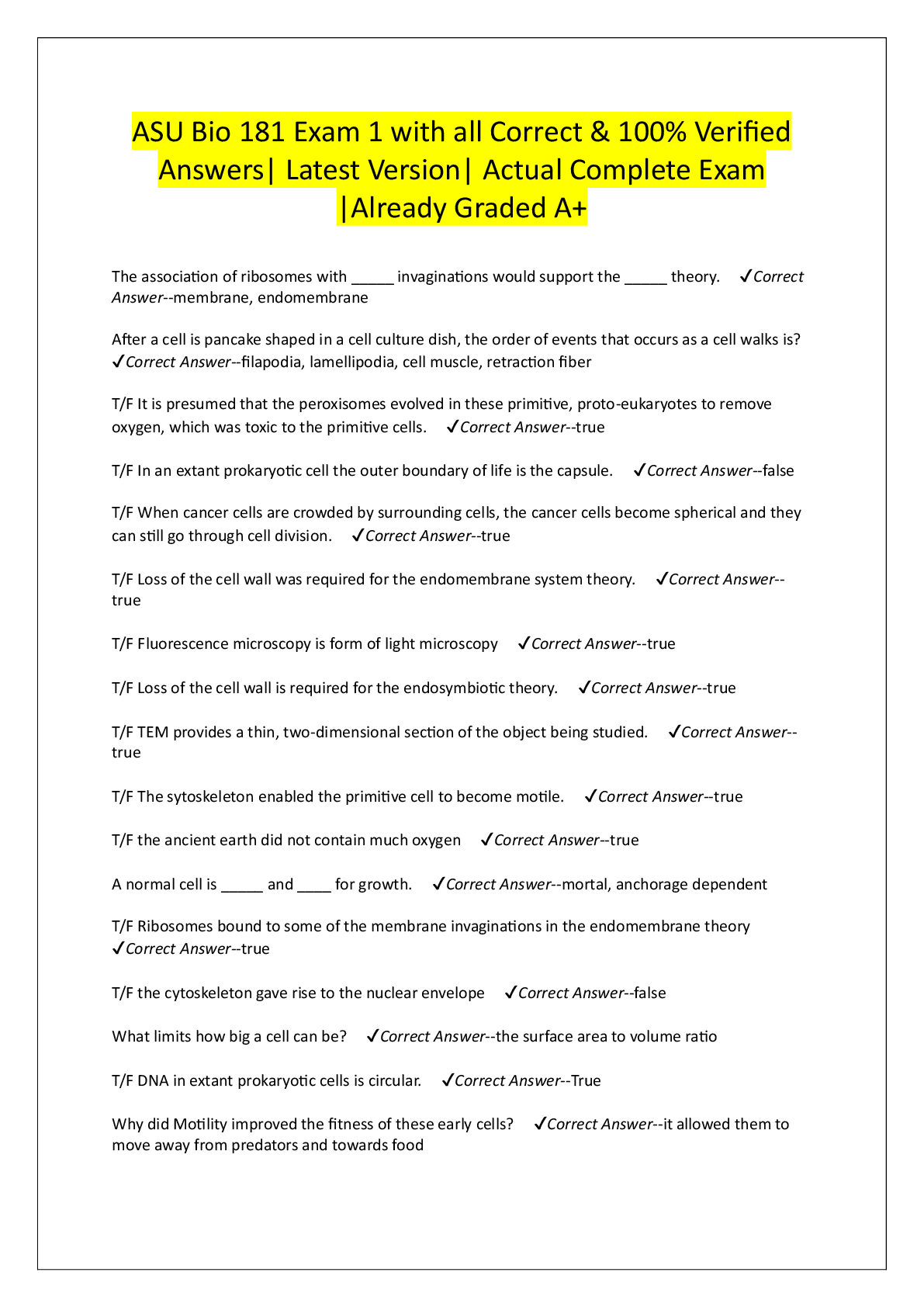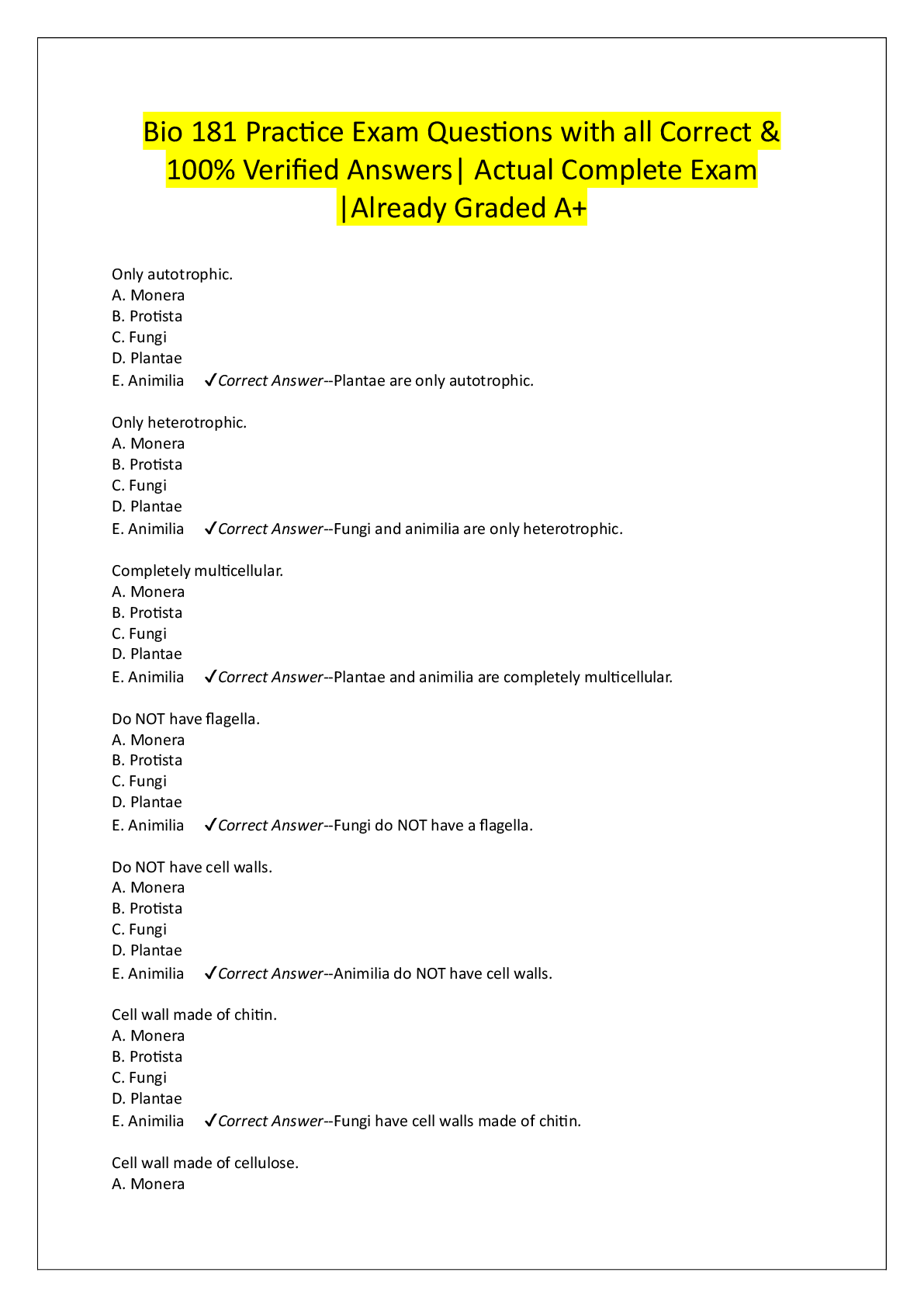English > EXAM > ENGL 102 test 3 Liberty University answers complete solutions, (Set 2) 2019/20. (All)
ENGL 102 test 3 Liberty University answers complete solutions, (Set 2) 2019/20.
Document Content and Description Below
ENGL 102 test 3 Liberty University answers complete solutions • Question 1 Choose one word that best explains why the people have rejected the “multitude of mercy” offered by the speak ... er? • Question 2 Why does Death use the word cruelly? • Question 3 In context, the excerpt depicts the world in which Everyman lives as __________. • Question 4 In context, the phrase “Everyman … liveth beastly” means that • Question 5 Choose one word that best describes how GOD feels about those about whom He speaks. • Question 6 Tragic plots are less likely than comic plots to exhibit the high degree of organic unity - of logical cause-and-effect progression- that Aristotle required of tragedy. • Question 7 Greek audiences had a knowledge of Homer's works. • Question 8 Pisistratus was the first poet known to insert choral works between verses. • Question 9 Oedipus killed Jokasta. • Question 10 Bolbus and Nerope are the childless couple in Oedipus Rex who adopt a child. • Question 11 Desdemona is as dishonest as Iago. • Question 12 In Greek theater, all roles were performed by males. • Question 13 Othello trusted Iago, his worst enemy. • Question 14 Goods states in the play Everyman: “Who calleth me? Everyman? What hast thou hast! / I lie here in corners, trussed and piled so high, / And in chest I am locked so fast, / Also sacked in bags, thou mayst see with thine eye, / I cannot stir; in packs low I lie. / What would ye have, lightly me say.” This excerpt uses visual imagery to show a pile of material wealth filling every space. By contrast and deductive reasoning, what is lacking? • Question 15 Elizabethan drama held to the single day theory of Classical drama. • Question 16 Miracle plays are religious in nature, while morality plays teach morals via secular themes. • Question 17 Sophocles did not • Question 18 One of Sophocles' contributions was the inclusion of female actors. • Question 19 Goods speaks in the play Everyman saying: “Who calleth me? Everyman? What hast thou hast! / I lie here in corners, trussed and piled so high, / And in chest I am locked so fast, / Also sacked in bags, thou mayst see with thine eye, / I cannot stir; in packs low I lie. / What would ye have, lightly me say.” An inanimate object, Goods, speaks in this excerpt. This technique is called ____________. • Question 20 What does Everyman try to do in the following excerpt from Everyman? “O Death, thou comest when I had thee least in mind; / In thy power it lieth me to save, / Yet of my good will I give thee, if ye will be kind, / Yea, a thousand pound shalt thou have, / And defer this matter till another day.” • Question 21 In the play Oedipus the Chorus say: “Majestic Oedipus! / No prince in Thebes had ever such renown, / No prince won such grace of power. / And now of all men ever known / Most pitiful is this man’s story: / His fortunes are most changed, his state / Fallen to a low slave’s / Ground under bitter fate.” In context, what has happened to Oedipus? • Question 22 In the play Oedipus the Chorus say: “Alas the seed of men./…/ That breathe on void and are void / And exist and do not exist?” In context, what does the second line—“That breathe on void and are void”—mean? • Question 23 "Quem Quoeritis" refers to Jesus as a brave lamb. • Question 24 In the play Oedipus the Chorus say: “Majestic Oedipus! / No prince in Thebes had ever such renown, / No prince won such grace of power. / And now of all men ever known / Most pitiful is this man’s story: / His fortunes are most changed, his state / Fallen to a low slave’s / Ground under bitter fate.” In context, Oedipus’ situation can be described as _________. • Question 25 Greek actors used giant masks to indicate their character types or emotions. • Question 26 Othello's major tragic flaws are his jealousy and too trusting nature. • Question 27 Oedipus Rex distinguishes itself from the typical classical plot by indicating what can happen to those who disobey, mock, or disbelieve the gods. • Question 28 In a carefully crafted Greek play, no god ever actively impacts the outcome of a hero's challenges. • Question 29 Oedipus Rex begins after a plague has begun. • Question 30 Match the following: o Question Overstatement Pleasant-sounding Understatement Simile Cacophony o • Question 31 Antigone and Ismene are Oedipus' daughters. • Question 32 The beggar in "Quem Quoeritis" pleads that he be included in Christ's resurrection. • Question 33 Othello has a jealous nature. • Question 34 Miracle plays flourished until late in the _____ century. • Question 35 The theme of Everyman is that life is momentary. • Question 36 Antiquated drama grew out of the religious ceremonies of the ancient Greeks. • Question 37 All actors in Greek drama were male. • Question 38 Othello is known to be honest, open, sincere, and overly trusting. • Question 39 Everyman is an extant English medieval morality play. • Question 40 Oedipus and his wife, Jokasta, have four children together. • Question 41 Sophocles writes during Athen's period of greatest glory. • Question 42 Greek anti-violent literary convention dictated that Oedipus could not return to the stage once he had plucked his eyes out. • Question 43 The play Oedipus opens with the following speech by Oedipus: “… Children,/ I would not have you speak trough messengers, / And therefore I have come myself to hear you- / I, Oedipus, who bear the famous name. / (To a Priest.) You, there, since you are the eldest in the company, / Speak for them all, tell me what preys upon you.” What does Oedipus mean when he says, “tell me what preys upon you”: • Question 44 Kreon and Teiresias (in the play Oedipus Rex) are a good example of the use of mute actors in ancient Greek drama. • Question 45 The play, Oedipus Rex, ends with a speech by _____ that includes the lines: "Let every man in mankind's frailty/Consider his last day'; and let none/Presume on his good fortune until he find/Life, at his death, a memory without pain." • Question 46 In Greek theater, actors dressed behind a circular curtain. • Question 47 Arion is a major contributor to Greek drama; he is the first poet known to insert choral works between verses. • Question 48 Choose the incorrect statement. • Question 49 Greek theater embraced a tradition in which a character was to be "a proud bearer of his fate." • Question 50 Aristotle, the Greek critic, said that a tragic hero could either be a nobleman or a common man. [Show More]
Last updated: 3 years ago
Preview 1 out of 11 pages

Buy this document to get the full access instantly
Instant Download Access after purchase
Buy NowInstant download
We Accept:

Reviews( 0 )
$10.00
Can't find what you want? Try our AI powered Search
Document information
Connected school, study & course
About the document
Uploaded On
Mar 10, 2020
Number of pages
11
Written in
All
Additional information
This document has been written for:
Uploaded
Mar 10, 2020
Downloads
0
Views
149

